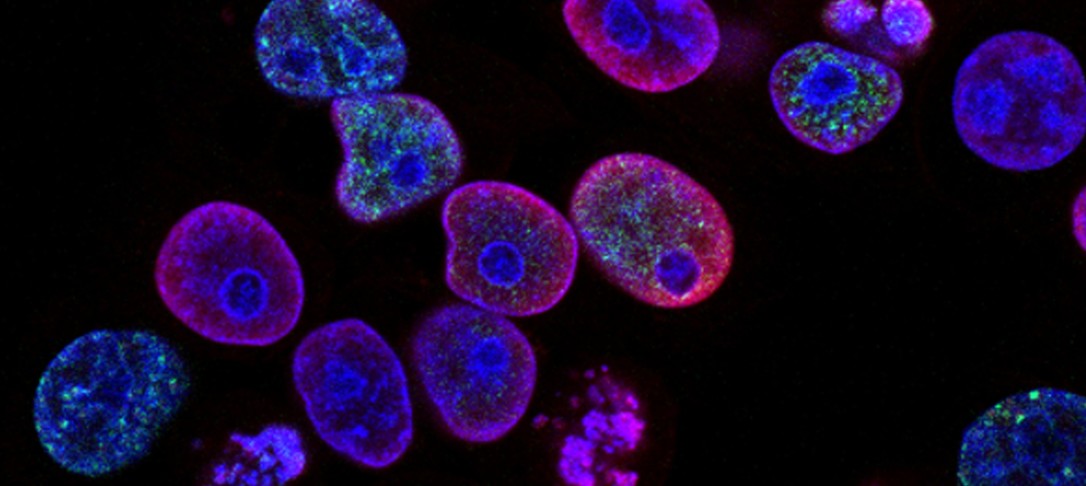
Our series of webinars is back, brought to you by the Cancer Research UK Convergence Science Centre at Imperial College London and The Institute of Cancer Research, London. Researchers across the two organisations will discuss key challenges facing cancer research and opportunities for new convergence science approaches to address these.
Hosted by the Convergence Science Centre’s Scientific Director Professor Axel Behrens, the series aims to support the Centre’s mission to facilitate collaboration between traditionally separate and distinct disciplines.
Please join us on Wednesday 23rd February, from 14.00-15.00, for a talk from:
Dr Ed Cohen – Department of Mathematics, Imperial College London
“Spatial statistics for cell membranes”
Super-resolution microscopy techniques have revolutionised biological imaging, having a profound impact on fields including microbiology, immunology and immunotherapy. Modern methods are able to localise single molecules in 3-dimensions to nanoscale precision, giving rise to what statisticians call a spatial point pattern. However, until now, methods have only existed for analysing spatial point patterns in standard (Euclidean) 2- or 3-dimensional space. In this talk, I will discuss the problems these classical set of tools present for real microscopy data, and present new methodology for analysing spatial point patterns that exist on curved surfaces (manifolds) – with particular focus given to studying 3D images of cell membranes.
&
Dr Gabriela Kramer-Marek – Division of Radiotherapy and Imaging, The Institute of Cancer Research and The Royal Marsden NHS Foundation Trust
“Photoimmunotherapy to eradicate residual cancer cells and induce anti-tumour immune response”
Intraoperative near-infrared photoimmunotherapy (NIR-PIT) is a molecularly-targeted fluorescence-based theranostic approach which could become part of the armoury to improve the extent of cytoreduction by providing more optimal delineation of resection margins. Furthermore, the photochemical processes triggered by light irradiation of the conjugate may lead to specific and localised tumour cell killing, activating anti-tumour immunological responses stimulated by the release of tumour-associated antigens from ablated tumour cells. I will discuss how this regimen could significantly alter the therapeutic approaches against glioblastoma an extremely aggressive type of brain tumour.
Dr Ed Cohen
Dr Cohen is a Senior Lecturer in Statistics at the Department of Mathematics, Imperial College London. His research interests can be broadly classed as statistical signal and image processing. A particular interest of his is the development of statistical methods for the analysis of biological imaging data, including molecular counting, clustering, metrology and spatial statistics. He is currently on sabbatical as a visiting fellow at the CRUK Research Centre, University of Southampton.
Dr Gabriela Kramer-Marek
Dr Kramer-Marek received her Ph.D. degree in Medical Physics in 2005 from Silesian University, Poland. The following year she joined the Radiation Oncology Branch at the NCI/NIH, Bethesda, USA, as a postdoctoral research fellow on the development and characterisation of molecular probes for in vivo detection and quantification of tumour-specific markers. In 2012 she accepted her first faculty position (Research Assistant Professor) at the Indiana University’s Department of Medicine, Indianapolis, US. Since July 2013 she has been leading the Preclinical Molecular Imaging Team at the Institute of Cancer Research in London, UK. Her research focuses on the development and characterisation of novel PET radioligands. In particular, she has established a platform of molecularly-targeted imaging agents that provide “smart-monitoring” of targeted therapies, including immunotherapies, in order to support a personalised medicine approach.
Registration
To receive information about how to access this event please email icr-imperial-convergence.centre@imperial.ac.uk
Please note: This webinar is exclusively available only to colleagues across the Institute of Cancer Research, Imperial College London, the Royal Marsden Hospital and Imperial College Healthcare.